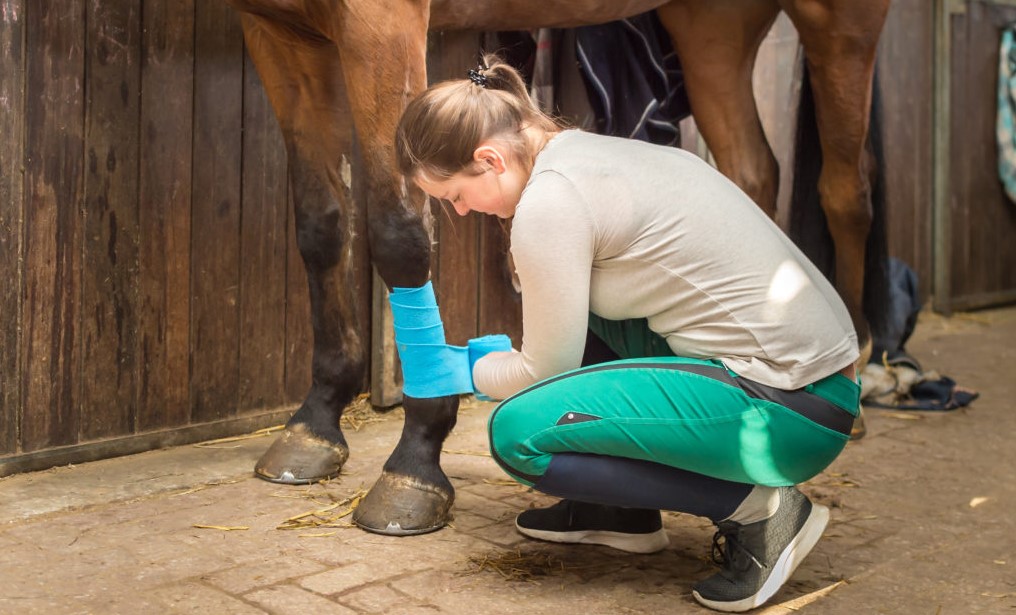Equine first aid is an essential aspect of horse care that all owners, riders, and caregivers should understand. From minor cuts and scrapes to more severe conditions like colic, being prepared can make all the difference in your horse’s well-being. This article provides a comprehensive guide to equine first aid, outlining what you should include in a first aid kit, how to handle common emergencies, and tips for ongoing health maintenance.
The Importance of Equine First Aid
Emergencies can happen at any time. Being equipped with the necessary tools and knowledge can not only alleviate your horse’s discomfort but can also save its life. Knowing what constitutes an emergency, what steps to take, and when to call a veterinarian are key aspects of effective equine first aid.
Equine First Aid Kit Essentials
Basic Supplies
- Gauze Pads and Rolls: For cleaning and covering wounds.
- Antiseptics: Like iodine or hydrogen peroxide for wound cleaning.
- Thermometer: To check for fever or illness.
Specialty Items
- Hoof Picks: To remove stones or debris.
- Twitch: To restrain the horse if necessary.
Medications
- Painkillers: Like phenylbutazone, under veterinary guidance.
- Antibiotics: For treating infections, again, under veterinary supervision.
Common Equine Emergencies and How to Handle Them
Cuts and Abrasions
- Cleaning: Use antiseptics to clean the wound.
- Covering: Use sterile gauze to protect the area.
Lameness
- Immediate Rest: Limit movement to avoid further injury.
- Cold Therapy: Ice packs can reduce swelling and pain.
Colic
- Call the Vet: Colic is often a medical emergency.
- Walking: Keep the horse moving to stimulate bowel movement but only if advised by a vet.
Ongoing Health Maintenance
Regular Check-ups
- A routine veterinary exam can catch issues before they become emergencies.
Vaccinations
- Essential for preventing diseases like tetanus and equine influenza.
Dental Care
- Regular dental check-ups can prevent eating difficulties and infections.
Important Tips for Emergency Situations
- Stay Calm: A panicked response can exacerbate the situation.
- Call the Vet: When in doubt, always consult a professional.
- Follow Veterinary Advice: Over-the-counter treatments can be harmful if misused.
When to Call a Veterinarian
- Uncontrolled bleeding
- Signs of colic
- Severe lameness
- Respiratory distress
Conclusion
Being prepared for equine emergencies is a responsibility that comes with owning or caring for a horse. From having a well-stocked first aid kit to knowing how to handle common emergencies, these skills are vital for the well-being of your equine companion. Regular health maintenance and veterinary check-ups are also essential in preventing emergencies and ensuring a long, healthy life for your horse.
